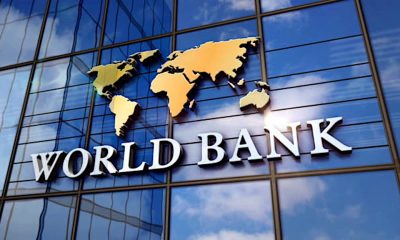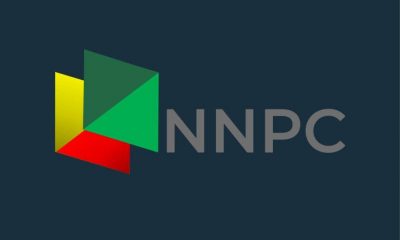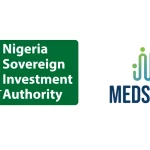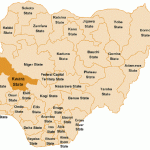Economy
Foreign Loans: World Bank Denies Disagreeing with Adeosun
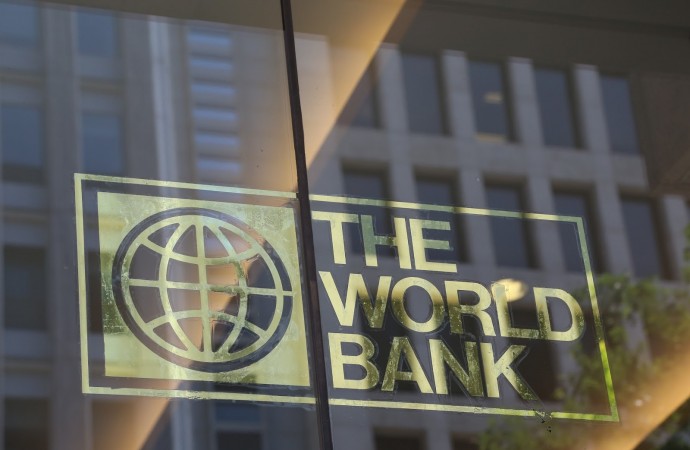
By Modupe Gbadeyanka
The World Bank Group has refuted reports in Nigeria claiming it frowned at the decision of the Federal Government to continue to borrow from international bodies to fund critical projects in the country.
In a statement issued by Oluyinka Akintunde, the Special Adviser on Media & Communications to the Minister of Finance, Mrs Kemi Adeosun, the World Bank said the media in Nigeria misrepresented and quoted comments made by its Senior Economist for Nigeria, Gloria Joseph-Raji, at an event in Abuja out of context.
The World Bank expressed its full commitment to help the Nigerian government restore macroeconomic resilience as well as strengthen the ongoing economic recovery and achieve sustainable inclusive growth.
In a mail to the Minister by the Senior Communications Officer of the World Bank, Mr Rachid Benmessaoud, the bank explained that, “On October 11, during the launch of Africa’s Pulse, the World Bank’s biannual analysis of African economies, World Bank Senior Economist for Nigeria, Gloria Joseph-Raji, was asked by a reporter to share her views on the Federal Government’s plan to increase external borrowing.
“At no point did she mention that the World Bank and the Federal Government of Nigeria (FGN) disagree on the need to rebalance the country’s debt portfolio. Where expenditures exceed revenue, governments will need to borrow.
“In doing so, the Federal Government is trying to rebalance its portfolio towards more external borrowing with lower interest rates and longer maturities.”
The World Bank Senior Economist was quoted by Mr Benmessaoud to have commended the Nigerian Government’s effort to rebalance its portfolio in order to lower the cost of its borrowing, as outlined in its 2016-2019 medium term debt management strategy released last year.
“The use of IDA concessional financing, among others, is supportive of the FGN’s effort in this regard, with the added focus on poverty alleviation and building shared prosperity in Nigeria.
“The latest issue of Africa’s Pulse points out that growth is Nigeria is projected to pick up from 1.0 per cent in 2017 to 2.5 per cent in 2018 and 2.8 per cent in 2019. While Government debt in 2017 is projected to rise, it remains low in Nigeria,” Joseph-Raji was further quoted to have stated.
Business Post recalls that the Finance Minister, Mrs Kemi Adeosun, who led the Nigerian delegation to the 2017 Annual Meetings of the International Monetary Fund and the World Bank Group, had in Washington on Sunday, said the Federal Government would be prudent in the management of its foreign borrowings.
She noted that the government adopted an expansionary fiscal policy with an enlarged budget in order to deliver a fundamental structural change to the economy, thereby reducing the country’s exposure to crude oil.
“Why are we borrowing? Mobilising revenue aggressively was not advisable, nor indeed possible, in a recessed economy. But as Nigeria now reverts to growth, our revenue strategy will be accelerated.
“This is being complimented by a medium-term debt strategy that is focusing more on external borrowings to avoid crowding out the private sector.
“This would also reduce the cost of debt servicing and shift the balance of our debt portfolio from short-term to longer-term instruments. This government will be very prudent around debt. We won’t borrow irresponsibly,” Mrs Adeosun had explained.
The foreign borrowings, which are at lower interest rates, according to her, will also prevent job losses.
“With Nigeria’s source of revenue dropping by nearly 85 per cent, the country had no option but to borrow. The option before the country was to either cut public services massively, which should have led to massive job losses, or borrow in the short-term, until it begins to generate sufficient revenues, she said.
“We felt that laying-off thousands of persons was not the best way to stimulate growth. Also, when we came into office, about 27 states could not pay salary. If we had allowed that situation to persist, we would have been in depression by now.
“So, we took the view as a government that the best thing to do was to stimulate growth and spend our way out of trouble, get the state governments to pay salaries, making sure that the federal government pays and invests in capital infrastructure,” said Mrs Adeosun.
Economy
Transcorp, DMO, CardinalStone, Chapel Hill Denham, Others Win at NGX Made of Africa Awards
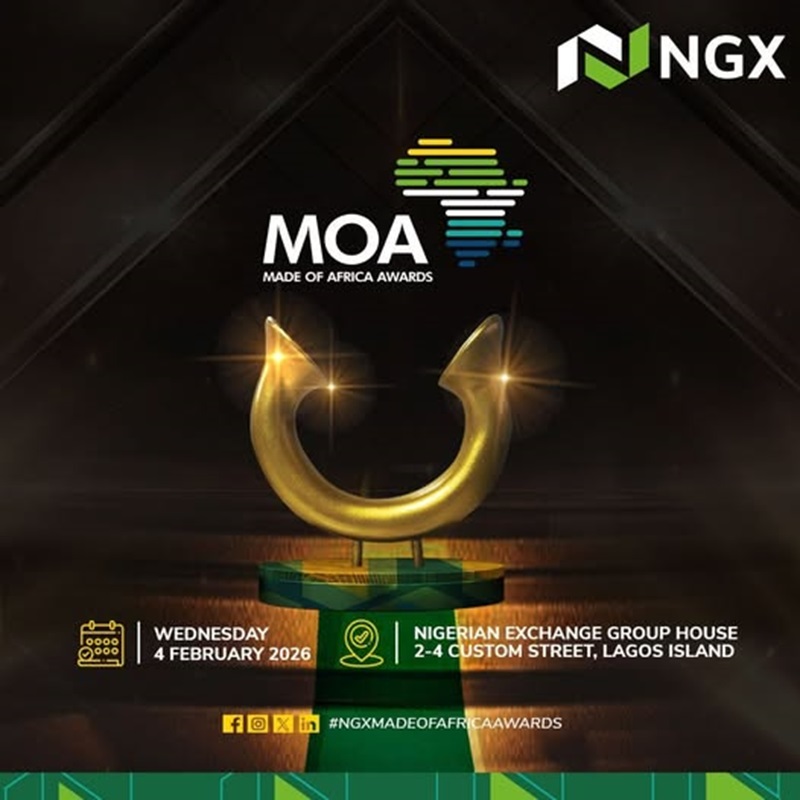
By Aduragbemi Omiyale
The 2025 Made of Africa Awards, hosted by Nigerian Exchange (NGX) Group Plc, paraded an array of winners, including brokers, issuing houses, trustees, fund managers, listed companies, and other market participants.
The event was to reward excellence in value delivery, compliance, and market impact, with Transcorp, the Debt Management Office, CardinalStone, Chapel Hill Denham, and MTN Nigeria Communications as recipients.
Business Post reports that the other recipients were First Trustees Limited as the Best Trustees in Terms of Deal Value, Legend Internet as the Market Debut Excellence award winner.
Further, CardinalStone Securities emerged as Equity Trader of the Year and Broker of the Year, Capital Express Securities won ETPs Trader of the Year, and Stanbic IBTC Stockbrokers was named Fixed Income Trader of the Year. Chapel Hill Denham received awards for Fund Manager with the Largest Listed Fund Size and Market Operator with the Highest Value of Foreign Portfolio Investment Transactions.
Mainstreet Capital and APT Securities and Funds jointly won Issuing House with the Highest Number of Primary Market Equity Transactions, while Anchoria Advisory Services led in corporate bond issuances. Dangote Cement was named Best Issuer in Terms of Fixed Income Listings, BUA Cement received the award for Most Compliant Listed Company, and Transnational Corporation Plc was honoured for Capital Market Excellence in Equity. Network Capital was named the Most Compliant Trading License Holder, United Capital Securities won the Best Sponsoring Trading License Holder and Banwo and Ighodalo received recognition for legal advisory value in capital market transactions.
Special recognition went to the Debt Management Office for fixed income market development and to the Capital Markets Correspondence Association of Nigeria for capital market reporting, and Lambeth Capital/Bamboo Systems Technology were recognised for onboarding the highest number of new retail investor accounts.
The chairman of NGX Group, Mr Umaru Kwairanga, said the awards underscore the role of market stakeholders in strengthening investor confidence and improving market standards.
“Their achievements set a benchmark for performance, integrity and innovation across the capital market,” he said, adding that sustaining this level of discipline and transparency is essential to maintaining the trust of both domestic and international investors in Nigeria’s financial markets.
The chief executive of NGX Group, Mr Temi Popoola, said, “Operational efficiency and cooperation across the ecosystem are increasingly important as trading activity diversifies and investor expectations continue to rise.”
On his part, the Executive Commissioner for Operations at the Securities and Exchange Commission (SEC), Mr Bola Ajomale, said the awards underscore the value of compliance and transparency in market development.
“Recognition through the Made of Africa Awards reinforces the importance of adherence to market rules and standards. When operators demonstrate accountability and professionalism, it strengthens investor confidence, ensures market integrity, and supports sustainable growth across Nigeria’s financial markets,” he said.
The chief executive of NGX Limited, Mr Jude Chiemeka, said recognising strong performance across the ecosystem supports deeper market participation and long-term capital mobilisation.
Economy
Police, Capital Market Regulators Partner for Nigeria’s Economic Growth
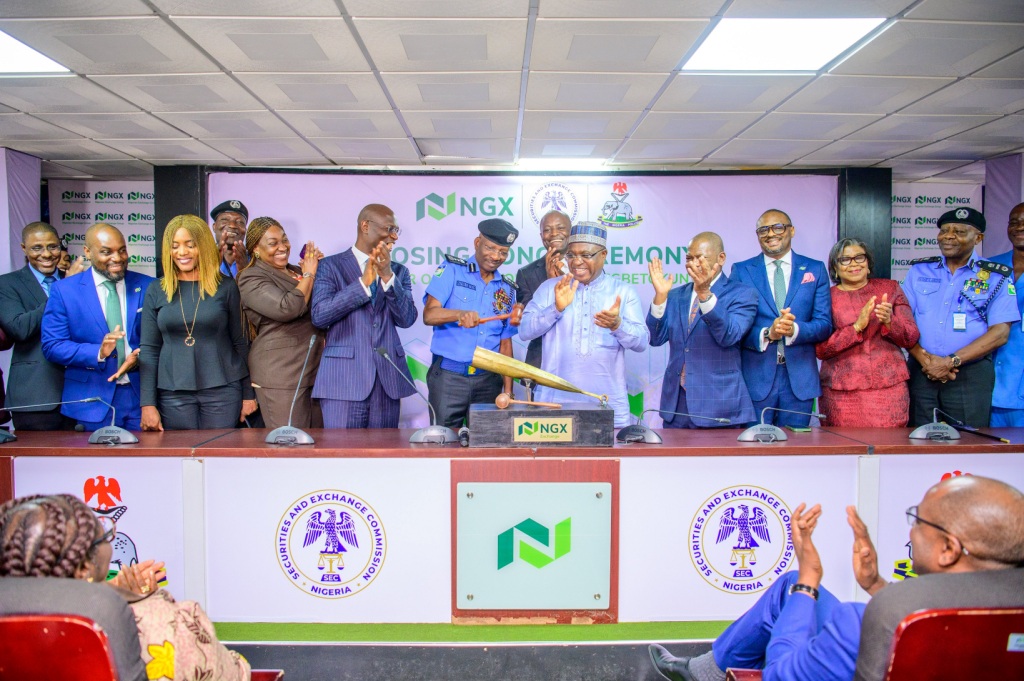
By Aduragbemi Omiyale
The Nigeria Police Force (NPF) has promised to work with the Securities and Exchange Commission (SEC) and the Nigerian Exchange (NGX) Group Plc for the prevention of financial crime, and the reinforcement of trust and confidence in Nigeria’s capital market.
The Inspector General of Police, Mr Kayode Egbetokun, gave this assurance on Wednesday at the closing gong ceremony in his honour at the NGX in Lagos.
The police chief said, “A transparent and well-regulated capital market is vital to Nigeria’s economic growth. The Nigeria Police Force remains committed to working with regulators and market operators to prevent financial crime, protect investors, and uphold the integrity of our financial system.”
Earlier in his welcome address, the chairman of NGX Group, Mr Umaru Kwairanga, commended the leadership of the police in supporting market integrity.
“Market integrity is a shared responsibility. By honouring the Inspector-General of Police, we are reinforcing the importance of institutional alignment in protecting investors and preserving trust in our financial system.
“Strong collaboration between regulators, enforcement agencies, and market infrastructure institutions is essential to building a resilient and credible market that supports economic growth,” he stated.
The Director-General of SEC, Mr Emomotimi Agama, while speaking, emphasized the importance of coordinated enforcement, noting: “Investor protection is at the core of market regulation, and today’s engagement highlights how critical collaboration with law enforcement is to achieving that mandate. This partnership strengthens our enforcement capacity, enhances deterrence against illegal investment activities, and reinforces confidence in the Nigerian capital market.”
As for the chairman of NGX Limited, Mr Ahonsi Unuigbe, “A transparent and orderly market can only thrive where rules are respected and misconduct is addressed decisively. The presence of the Nigeria Police Force in this collective effort sends a strong signal that safeguarding the market is a national priority.”
Similarly, the chief executive of NGX Group, Mr Temi Popoola, stressed the importance of aligning innovation with oversight, pointing out that, “Technology and market growth must be supported by strong enforcement and investor protection frameworks. Our collaboration with the SEC and the Nigeria Police Force reflects a unified approach to preserving the credibility of Nigeria’s capital market.”
Economy
NASD OTC Exchange Closes Green by 0.09%

By Adedapo Adesanya
The NASD Over-the-Counter (OTC) Securities Exchange rallied by 0.09 per cent on Wednesday, February 4, amid renewed appetite for unlisted stocks.
This lifted the NASD Unlisted Security Index (NSI) by 3.18 points to 3,641.30 points from the previous session’s 3,641.30 points and raised the market capitalisation by N1.9 billion to N2.180 trillion from the N2.178 trillion quoted on Tuesday.
The bourse recorded three price gainers and four price losers at the midweek session.
The advancers were led by Air Liquide Plc, which went up by N2.04 rise to end at N22.53 per share versus the previous session’s N20.49 per share, Central Securities Clearing System (CSCS) added 97 Kobo to sell at N44.97 per unit versus N44.00 per unit, and Acorn Petroleum Plc appreciated by 2 Kobo to N1.37 per share from N1.35 per share.
On the flip side, Geo-Fluids Plc lost 55 Kobo to sell at N6.26 per unit versus N6.81 per unit, Nipco Plc depreciated by 48 Kobo to trade at N259.00 per share versus N259.48 per share, FrieslandCampina Wamco Nigeria Plc declined by 40 Kobo to N63.10 per unit from N63.50 per unit, and Industrial and General Insurance (IGI) depleted by 1 Kobo to 65 Kobo per share from 66 Kobo per share.
Yesterday, the volume of trades slid by 64.5 per cent to 2.5 million units from 7.0 million units, the value of transaction decreased by 53.2 per cent to N17.7 million from N37.9 million, and the number of deals went down by 47.1 per cent to 18 deals from 34 deals.
CSCS Plc remained the most traded stock by value on a year-to-date basis with 16.0 million units valued at N652.6 million, followed by FrieslandCampina Wamco Nigeria Plc with 1.7 million units exchanged for N111.2 million, and Geo-Fluids Plc with 11.7 million units traded for N76.1 million.
CSCS Plc was also the most active stock by volume on a year-to-date basis with 16.0 million units sold for N652.6 million, trailed by Mass Telecom Innovation Plc with 13.3 million units worth N5.3 million, and Geo-Fluids Plc with 11.7 million units valued at N76.1 million.
-

 Feature/OPED6 years ago
Feature/OPED6 years agoDavos was Different this year
-
Travel/Tourism9 years ago
Lagos Seals Western Lodge Hotel In Ikorodu
-

 Showbiz3 years ago
Showbiz3 years agoEstranged Lover Releases Videos of Empress Njamah Bathing
-

 Banking8 years ago
Banking8 years agoSort Codes of GTBank Branches in Nigeria
-

 Economy3 years ago
Economy3 years agoSubsidy Removal: CNG at N130 Per Litre Cheaper Than Petrol—IPMAN
-

 Banking3 years ago
Banking3 years agoSort Codes of UBA Branches in Nigeria
-

 Banking3 years ago
Banking3 years agoFirst Bank Announces Planned Downtime
-

 Sports3 years ago
Sports3 years agoHighest Paid Nigerian Footballer – How Much Do Nigerian Footballers Earn





